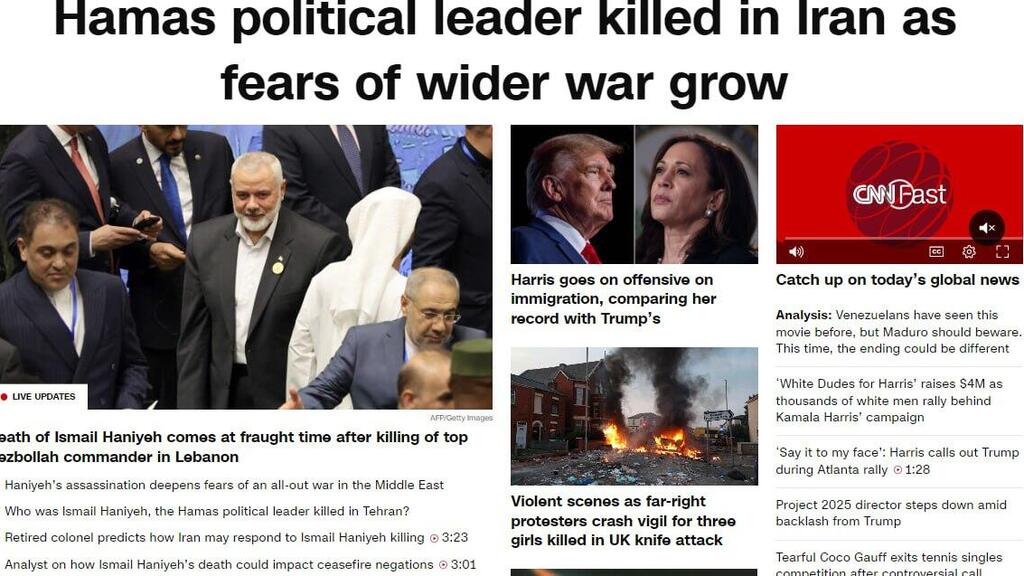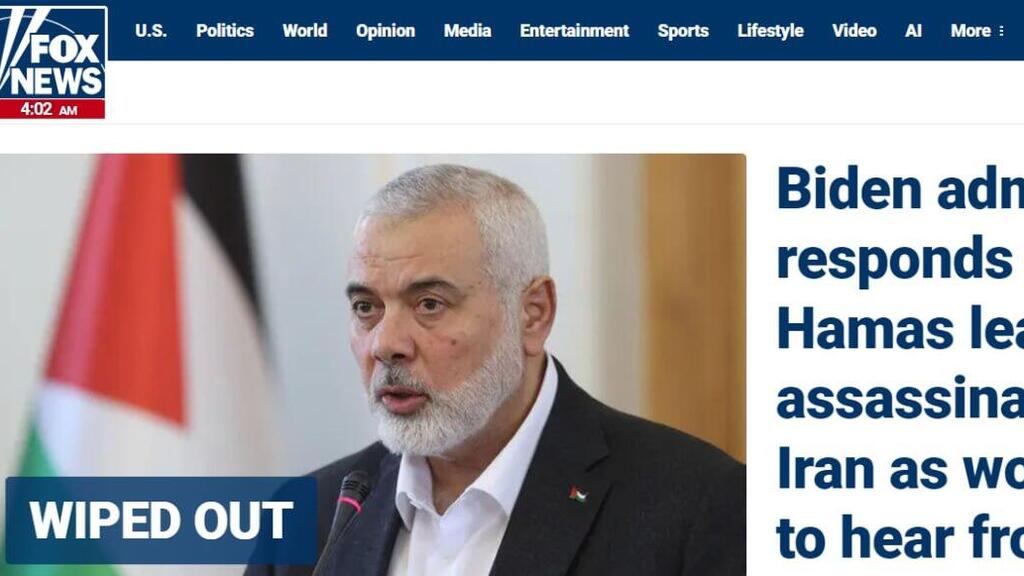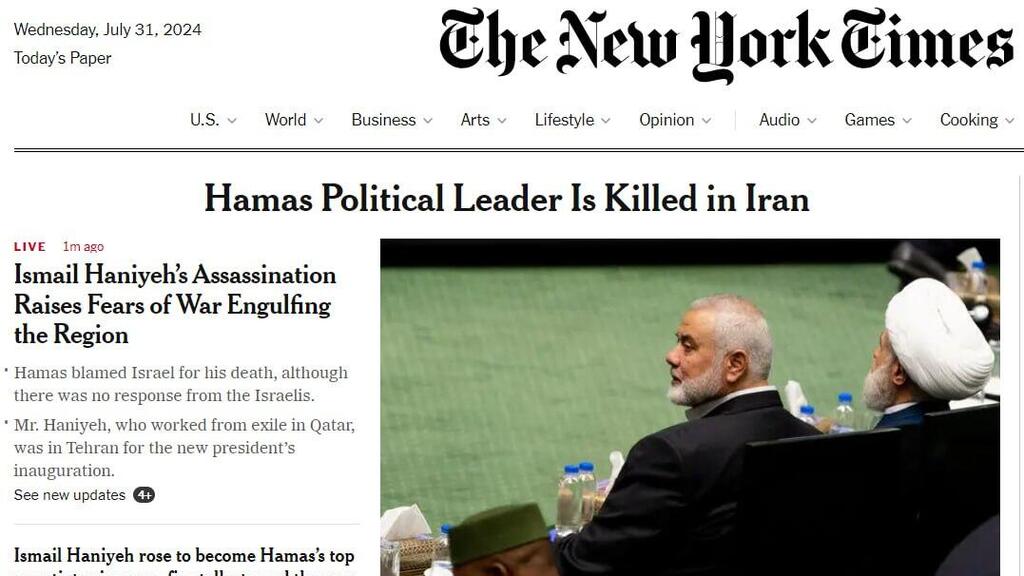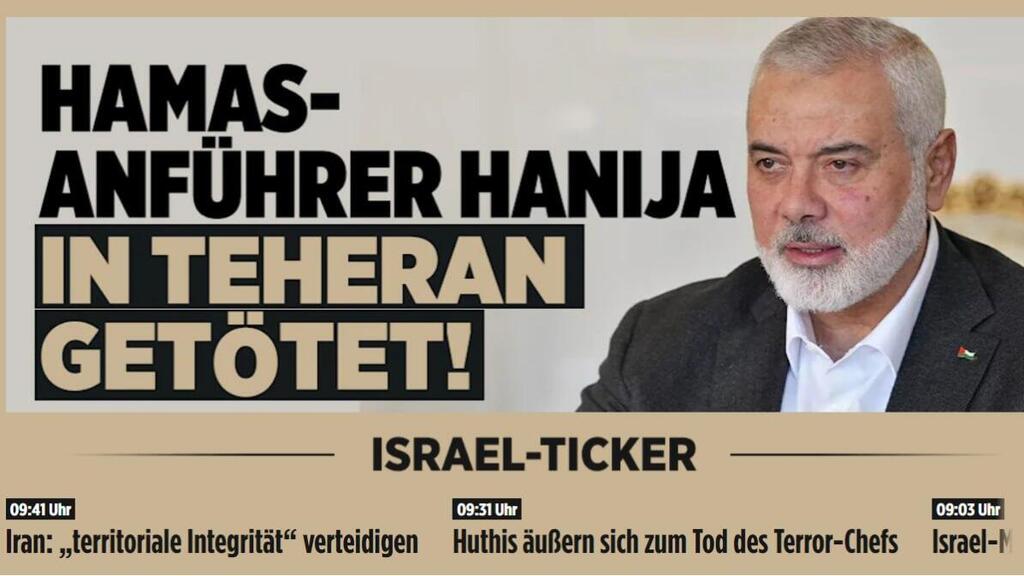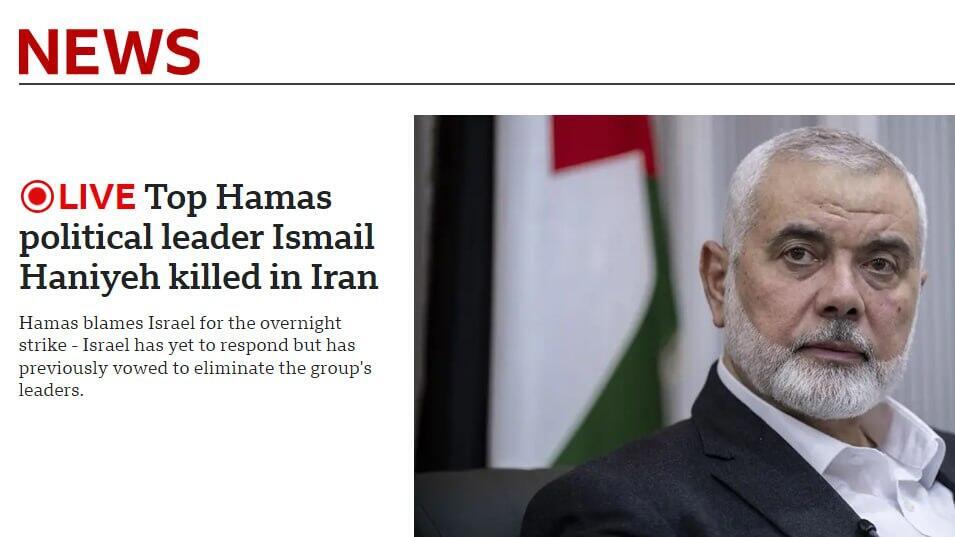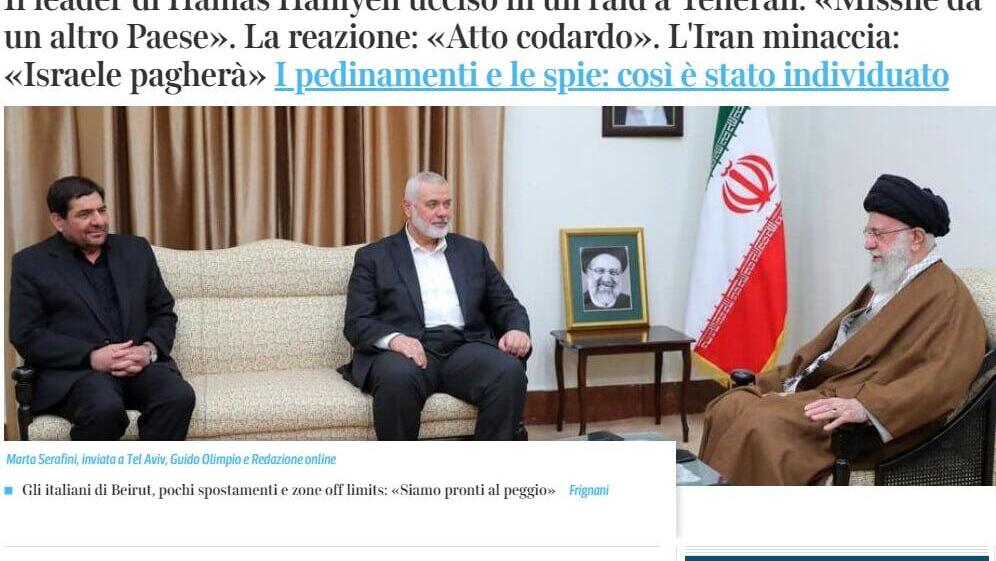Getting your Trinity Audio player ready...
The dramatic assassination of Hamas leader Ismail Haniyeh in Tehran overnight Wednesday has sparked global headlines, raising concerns about the potential for an all-out war engulfing the Middle East.
International media emphasized the significant humiliation to Iranian leadership after Haniyeh was killed on Iranian soil during an official visit. This development casts doubt on the ongoing cease-fire negotiations in Gaza, where Haniyeh was seen as a critical and relatively moderate figure.
"Wiped out," was the main headline on the Fox News website, featuring Haniyeh's photo. Middle East commentator Lisa Daftri told the network that Haniyeh's assassination in Tehran, shortly after attending the inauguration ceremony of Iran's new President Masoud Pezeshkian, "sends a clear message that Israel does not differentiate between Iran and its proxies, Hamas and Hezbollah." Former U.S. intelligence officer Matt Shoemaker echoed this sentiment, saying that Israel's actions indicate it "isn't messing around."
The New York Times highlighted the security breach, noting, "Iran's failure to protect the leader of an ally in its capital city is a serious lapse." Haniyeh had met with Supreme Leader Ali Khamenei shortly before his death, raising questions about the security of senior Iranian officials and Israel's ability to target them.
CNN described Haniyeh's assassination as "a dramatic blow to Hamas," eliminating a key figure who headed the group's political operations while abroad. The BBC quoted former British National Security Advisor Lord Peter Ricketts, who called the assassination "a powerful demonstration of Israel's reach throughout the Middle East."
Amid these developments, the primary question in global media remains whether the Middle East is on the brink of conflagration. "Hamas political leader killed in Iran, as fears of wider war grow," read CNN's headline. The network explained that Haniyeh's death, following the assassination of Hezbollah's top military commander in Lebanon, marks "a major escalation that deepens fears of an all-out war."
The BBC's Beirut correspondent warned that Haniyeh's assassination is a "significant and dangerous development," potentially undermining cease-fire efforts. Conversely, the BBC's Jerusalem correspondent suggested that the assassination might expedite the end of the war, allowing Israel to claim a major blow to Hamas leadership and de-escalate in Gaza.
Global newspapers published profiles of Haniyeh, often portraying him as a pragmatic diplomat. The Guardian described him as "a moderate within Hamas," essential to cease-fire negotiations. Meanwhile, Italy's Corriere della Sera acknowledged Haniyeh's history of terrorist activity, recalling his celebration of the October 7 attacks that killed 1,200 Israelis.
Italian commentator Federico Rampini wrote that the assassination could signify an unstoppable escalation toward "total war" in the Middle East, calling it a "humiliation for the entire Iranian leadership." However, Rampini also speculated that the assassinations in Beirut and Tehran might be strategic moves by Israel to declare victory and withdraw from Gaza.
The world watches closely, clinging to any hope for peace amid the rising tensions. Only time will reveal the true impact of these events.



